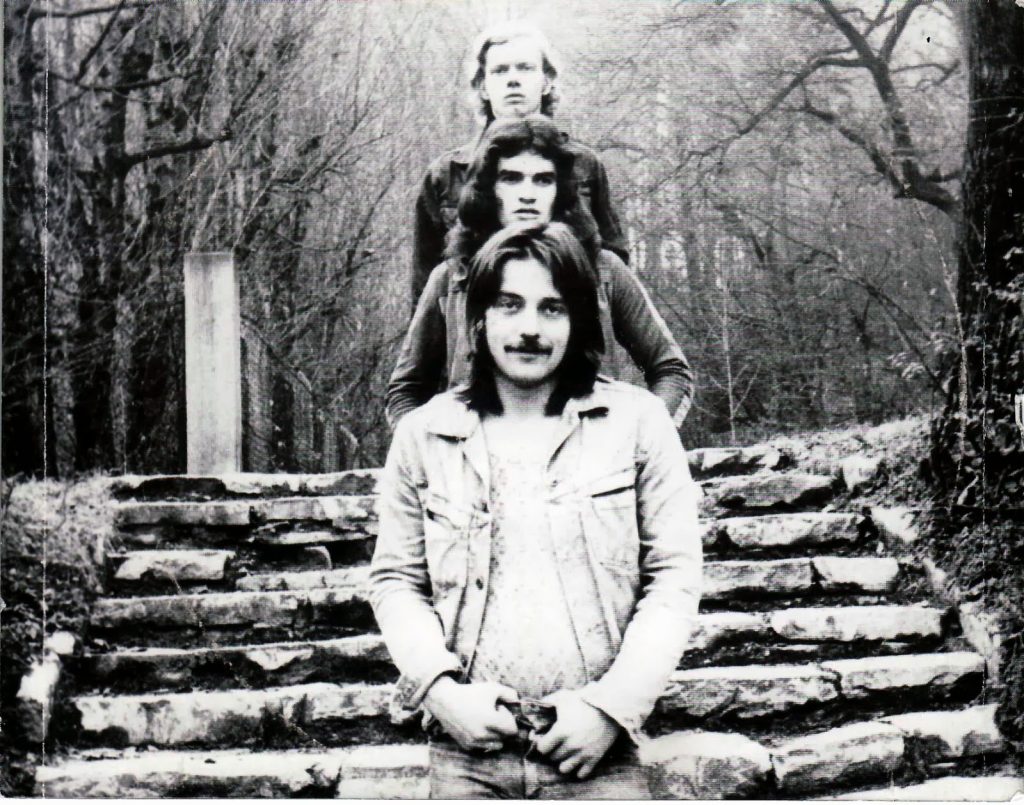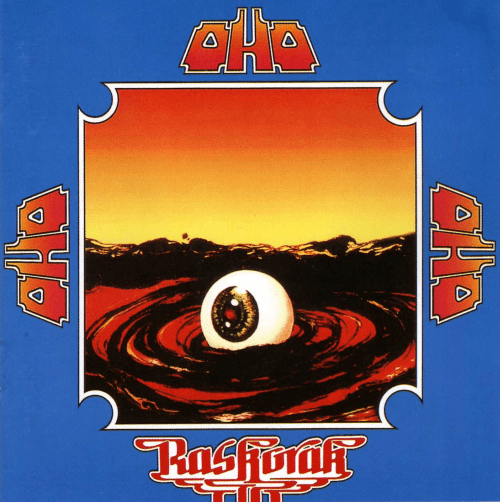By the mid-1970s, Ljubljana’s underground scene had become a quiet playground for adventurous musicians who lived between genres. Jazz-rock outfits like Izvir, Predmestje, and September were fusing improvisation with jazz and progressive rock, searching for something uniquely Yugoslav while remaining globally tuned. Among them was Oko, a short-lived but fascinating project led by guitarist and vocalist Pavle Kavec.
Formed in 1972, Oko embodied the restless spirit of the Ljubljana jazz-rock underground — technically skilled and groovy, while adding a psychedelic twist. Their name (“The Eye”), reportedly suggested by Janez Bončina (of September), helped carry that sense of cosmic rock and curiosity. By the time they released their sole LP, Raskorak, in 1976 through Jugoton, the band already felt like an anomaly: too heavy for jazz purists, too abstract for mainstream hard rock. But that niche is exactly what makes Raskorak so compelling today.
The lineup featured Franjo Martinec on bass, Toni Dimnik on drums, and guest keyboardist Andrej Konjajev — later of Izvir — who appears on several tracks. Together they crafted a dense, textural record that floats between fuzzed-out acid rock and nimble jazz-rock.

Hoćeš Li Sa Mnom opens the album with a hazy, slow-burning groove that gradually erupts into distorted chaos. The fuzzy guitars and jazz-inflected drumming give it a real edge — think early Time filtered through Pink Floyd’s space-rock. Kavec’s vocals aren’t the focal point, but they blend well enough with the dense arrangement, allowing the instrumentation to drive the experience.
Sve Sam Ti Dao pushes into funkier territory. The interplay between the rhythm section and Kavec’s guitar is tight and dynamic, and you can’t help but nod along. It’s psychedelic and groovy without losing its rock backbone — one of the record’s most accessible moments.
Hej Mala brings things back down to earth: a straightforward psychedelic rock tune that’s enjoyable but less ambitious. The vocals once again feel flat, though the instrumental energy keeps it afloat.
On Tema IV, the group fully embraces their jazz-rock side. Written by Martinec, it’s a smooth, instrumental cut that trades fuzz for space — giving the listener a breather after the dense, swirling soundscapes of Side A.
Flipping to Side B, Baj Baj opens with nostalgic warmth but ultimately feels like a weak link. The emphasis on vocals exposes the band’s limitations in that area, and the track lacks the spark of side A.
Then comes Sam Sam — the emotional centrepiece. In my opinion, this is where Oko finds magic. The song feels weightless, melancholic, and almost otherworldly. The keys shimmer like light through fog, and the composition recalls the grandeur of Time’s ballads, though without Dado Topić’s commanding vocal range. The imperfections only make it more human, as we find joy in finding such a hidden gem.
The closing title track, Raskorak, stretches to eight minutes and dives headlong into space-rock territory. It begins dreamlike, very much inspired by Pink Floyd, before bursting into a whirlwind of jazz-rock improvisation. The musicians sound liberated here — the groove loose, exploratory, and cosmic. It’s an ambitious closer that ties together the band’s dual identity: psychedelic explorers and jazz-rock craftsmen.
As a whole, Raskorak feels like a hidden artefact from another dimension of Yugoslav rock. It’s flawed, yes — the vocals sometimes distract, and not every track hits the mark — but its charm lies in its ambition and atmosphere. The blend of jazz-rock precision and psychedelic haze creates something genuinely hypnotic.
Maybe its rarity and cult aura add to the allure, but even stripped of myth, Raskorak remains a rewarding listen. It’s a record that captures a fleeting moment when Ljubljana’s underground was daring enough to look beyond genres — and beyond the horizon.
If you’re interested in learning more about Ljubljana’s jazz-rock underground, check out my guide here!


